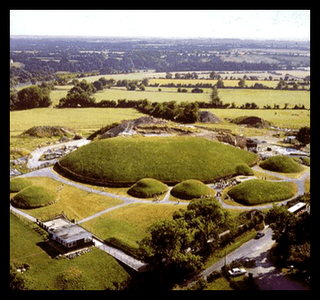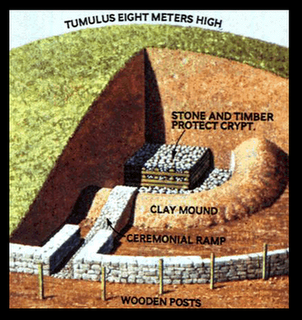The Warrior Code
[The links will take you to the version on this site. The line numbers in Heany's translation are the same.]
 |
 | 8 meters
=
26 feet |
Celtic Barrow Graves in Hochdorf,
southern Germany |
The warrior code demands courage, loyalty, and revenge. Courageous warriors are rewarded and honored by their lords, their ring-givers; in return they give him their loyal support in every battle, and all battles have a revenge element. Even the monsters act out a revenge motive. Grendel takes revenge on Hrothgar's men for their happiness in the hall; Grendel's mother takes revenge for her son's death; the Dragon takes revenge for the theft of a cup.
In the last section, when Beowulf faces the Dragon, there are many implications about the warrior code:
- In section 32 (lines 2221 ff.) We see that the Dragon's treasure was placed in the barrow by the last survivor of a tribe who mourns that all the armor and adornments are now useless. Later, the treasure was found by the dragon, who guarded it for 300 years.
- In Section 34 (Lines 2435 ff.), the story of Herebald's death shows that sometimes there is no way to get revenge, any more than there is when a man sorrows at the hanging of his son for a crime.
- In Section (Lines 2596 ff.) Beowulf's comrades-in-arms, all except Wiglaf, flee into the forest.
- In Section 36 (Lines 2631 ff.) Wiglaf speaks of how the loyalty & honor of Beowulf's men have failed.
Discussion Questions:
- Does the poem uphold the warrior code, or criticize it?



